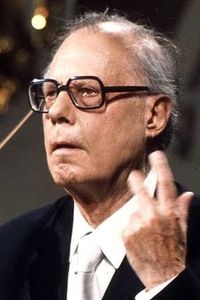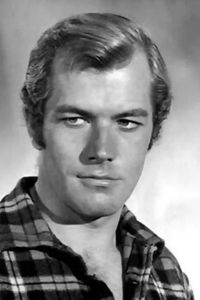Karl August Leopold Böhm, a highly esteemed and accomplished Austrian conductor, is widely recognized for his exceptional skill and artistry in leading orchestras through the magnificent and complex compositions of Mozart, Wagner, and Richard Strauss, thereby earning a reputation as a master of his craft, with his interpretations of these iconic works being hailed as some of the most memorable and unforgettable performances in the annals of classical music history.
Born on August 28, 1894, in the charming city of Graz, Austria, a place where the beauty of the Alps meets the elegance of European culture, Böhm was the proud son of a lawyer, a respected and esteemed professional in the field of law. As a young man, he initially embarked on a career in law, driven by a desire to understand the intricacies of justice and the complexities of human relationships. His academic pursuits led him to earn a doctorate, a significant achievement that marked the beginning of his intellectual journey. However, as his passion for music grew stronger, he made the bold decision to transition to the world of music, a choice that would ultimately define his life's work. He then enrolled at the prestigious Graz Conservatory, where he honed his skills and refined his craft under the guidance of renowned instructors. Later, he continued his studies at the esteemed Vienna Conservatory, where he had the privilege of being mentored by the illustrious Eusebius Mandyczewski, a close friend and confidant of the great Johannes Brahms, a legendary composer and pianist of the time.
Böhm's illustrious conducting career commenced in 1917, marked by a humble beginning as a rehearsal assistant in his hometown, laying the foundation for a lifelong passion for music. His debut performance in Viktor Nessler's renowned opera, Der Trompeter von Säckingen, showcased his talent and dedication, setting the stage for his future success.
As his skills and reputation grew, Böhm continued to rise through the ranks, assuming the role of assistant director of music in 1919, a position that allowed him to hone his craft and develop his leadership abilities. The following year, he ascended to the esteemed position of senior director, further solidifying his position as a respected figure in the music world.
In 1921, his career received a significant boost when Karl Muck, a renowned conductor in his own right, recommended Böhm to the esteemed Bruno Walter. This chance encounter led to Böhm's engagement at the prestigious Bavarian State Opera in Munich, a milestone that marked the beginning of a long and distinguished tenure that would cement his status as a leading conductor of his time.
Next person biography:
Böhm's nascent professional trajectory commenced with a series of assignments, the first of which was a notable production of Mozart's renowned opera, Die Entführung aus dem Serail, which boasted an impressive cast comprising the esteemed soprano Maria Ivogün, the versatile baritone Paul Bender, and the celebrated tenor Richard Tauber.
In 1927, Böhm was appointed to the prestigious position of chief musical director in Darmstadt, a role he would later replicate at the Hamburg State Opera from 1931 to 1934, where he would further hone his skills and leave an indelible mark on the institution.
Carl Fidelio von Reznicek's protégé, Karl Böhm, made his debut in Vienna in 1933, showcasing his exceptional conducting skills in a performance of Richard Wagner's iconic opera, Tristan und Isolde. Subsequently, in 1934, he took the reins as the artistic director of Dresden's esteemed Semper Opera, a position he held steadfastly until 1942. During his tenure, the opera house witnessed the world premieres of numerous significant works, including Richard Strauss's operas, Die schweigsame Frau in 1935 and Daphne in 1938, which was dedicated to Böhm's immense talent and dedication to the art form.
Renowned conductor, Böhm, made a significant impact on the classical music scene by premiering several notable compositions. His inaugural performances of Heinrich Sutermeister's Romeo und Julia in 1940 and Die Zauberinsel in 1942 showcased his exceptional skill and artistry.
Moreover, Böhm had the privilege of conducting Richard Strauss's Horn Concerto No. 2 in 1943, further solidifying his reputation as a master of his craft.
In addition to his work in the concert hall, Böhm also made a memorable debut at the prestigious Salzburg Festival in 1938, where he conducted Mozart's iconic opera, Don Giovanni.
His impressive performance earned him a permanent guest conductor position at the festival, a testament to his exceptional talent and dedication to his craft.
Throughout his illustrious career, Böhm continued to inspire and delight audiences with his captivating interpretations of the world's most beloved classical compositions.
After the Second World War had finally come to a close, the renowned Austrian conductor, Karl Böhm, took to the stage once more, leading a production of Mozart's iconic opera, Don Giovanni, at the prestigious La Scala in Milan, Italy, in the year 1948.
In the following year, 1949, Böhm made a guest appearance in the City of Light, conducting a performance of his Vienna State Opera company at the esteemed Palais Garnier in Paris, France.
From 1950 to 1953, Böhm embarked on a new chapter in his career, serving as the director of the German season at the world-renowned Teatro Colón in Buenos Aires, Argentina.
During his tenure at the Teatro Colón, Böhm had the distinction of conducting the first performance in Spanish of Alban Berg's groundbreaking opera, Wozzeck, a production that was specially translated for the occasion.
In the year 1953, the renowned conductor, Böhm, played a pivotal role in the inaugural performance of the esteemed Austrian composer Gottfried von Einem's significant work, Der Prozess.
During the subsequent years, from 1954 to 1956, Böhm took on the esteemed responsibility of directing the prestigious Vienna State Opera, which had recently relocated to its newly reconstructed home.
In addition to his esteemed position at the Vienna State Opera, Böhm also re-established connections with the esteemed Staatskapelle in Dresden, marking a significant step towards post-war reconciliation.











